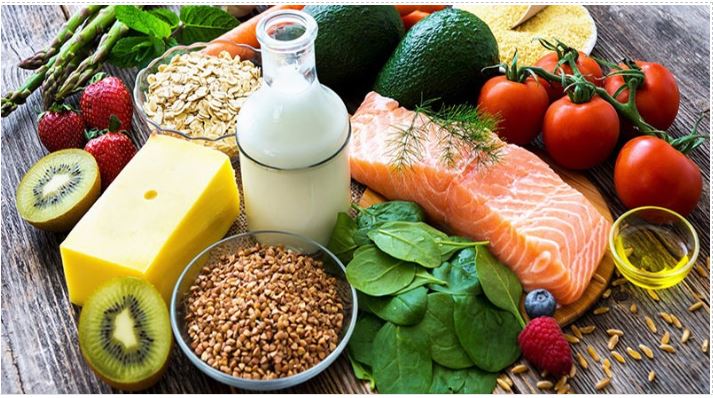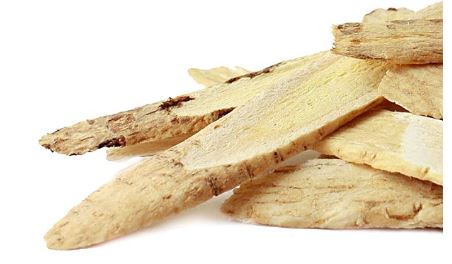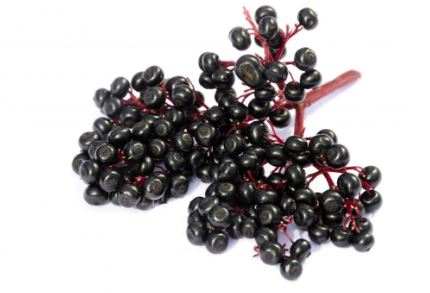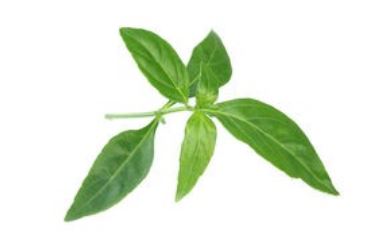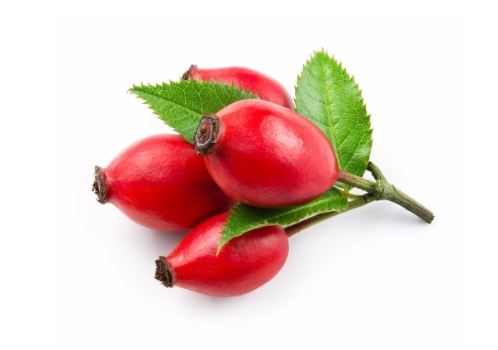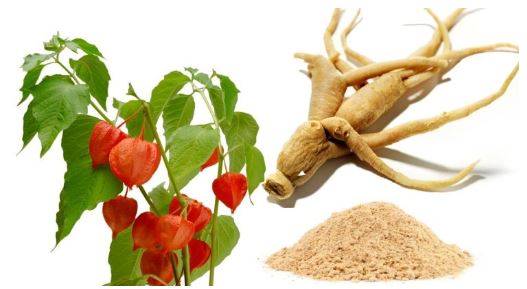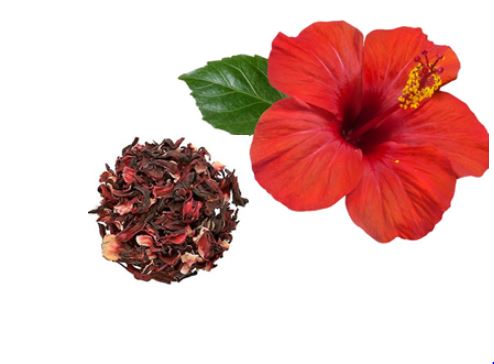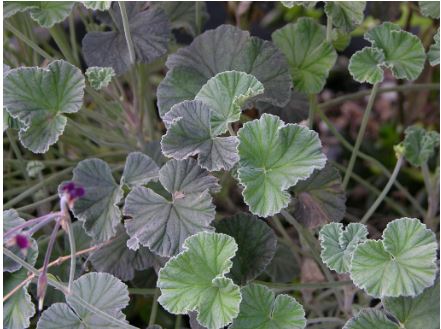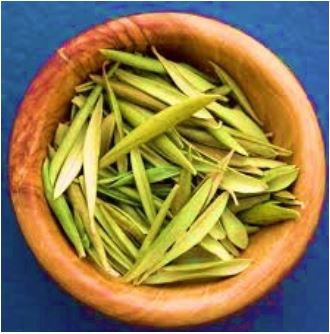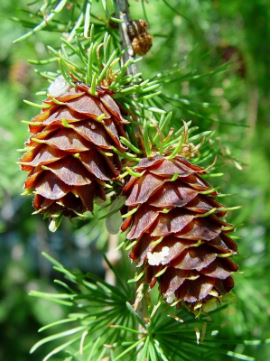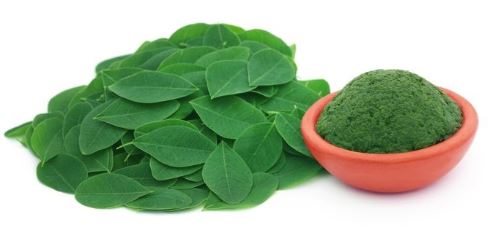HACK YOUR IMMUNE SYSTEM
Hands down, the best kind of hacking you can do is hack your immune system! No penalties or bad rep, just a chance at living and enjoying your life to the fullest. How can you go wrong?
“Can You Hack Your Immune System & Reset It?”
Yes!
You don’t have to be a health expert to do that. All you need is…
- Knowledge
- Commitment to make a change to your lifestyle and health
- Discipline to stick to the changes
- Humility to seek consultation to make sure you are doing it right
…and that’s it!
This begs us to ask the question…why do I need to reset my immune system?
WHAT DOES MY IMMUNE SYSTEM DO?
Before we talk about the importance of resetting the immune system, let’s take a few minutes to talk about the role of the immune system in the body. The deeper your understanding is of the significant role the immune system plays in the body, the more convinced you will be in taking the right steps.
You owe it to yourself and your immune system!
Immune system is the body’s defense against infectious organisms and other invaders. Through a series of steps called the immune response, the immune system attacks organisms and substances that invade body systems and cause disease. The immune system is made up of a network of cells, tissues, and organs that work together to protect the body.
This protection that the body gets is called immunity.
Humans have 3 kinds of immunity: innate immunity, adaptive immunity, and passive immunity.
Innate Immunity
Everyone is born with innate (or natural) immunity, a type of general protection. Many of the germs that affect other species don’t harm us. For example, the viruses that cause diseases in cats or dogs don’t affect humans.
Innate immunity also includes the external barriers of the body, like the skin and mucous membranes (like those that line the nose, throat, and gastrointestinal tract), which are the first line of defense in preventing diseases from entering the body. If this outer defensive wall is broken (as through a cut), the skin attempts to heal the break quickly and special immune cells on the skin attack invading germs.
Adaptive Immunity
The second kind of protection is adaptive (or active) immunity, which develops throughout our lives. Adaptive immunity involves the lymphocytes and develops as people are exposed to diseases or immunized against diseases through vaccination.
Passive Immunity
Passive immunity is “borrowed” from another source and it lasts for a short time. For example, antibodies in a mother’s breast milk give a baby temporary immunity to diseases the mother has been exposed to. This can help protect the baby against infection during the early years of childhood.
The bottom line is simple. Your immune system is responsible for providing immunity to the body and it is constantly busy.
If you have a defense army that is protecting you from invading forces, then it is a no-brainer that you strengthen the army, make sure it has proper equipment and healthy soldiers to battle out the enemies and keep the territory safe and protected! The same is true for your immune system. If you keep the immune system cells, tissues and organs strong and well-maintained, then they will fight intruders like allergens, invading cells and even tumor growths to keep your body safe.
The nature will play its role, if you nourish your body according to the rules of nature!
In here, I will not delve into the problems and disorders of immune system. Instead I will only focus on how to strengthen your immune system and keep it working efficiently to help your body overcome nuisances like:
- Common cold and other viral infections
- Allergies
- Asthma
- Minor food intolerances etc.
WHY DOES THE IMMUNE SYSTEM BECOME WEAK?
This is where you need to really pay attention.
Often our health issues start before we are even born. We derive our first nutrients from our mothers while we are still inside them. Our health, or lack of, is very intimately tied to their health and what they eat.
If the mother neglects her diet during pregnancy and doesn’t have necessary nutrients OR if she has a genetic problem, then it affects the child and is the beginning of all future immune related issues.
This is the first and the most important reason behind immune related issues. However, it is not the only thing. There are many things which contribute to it overtime. Some of these are…
- Neglect of proper diet for the growing child, especially if the child is a picky eater. Often parents give into the child’s demands and allow him to eat whatever he likes and not what’s good for him.
- Baby formula given to the child; sometimes, the effects of the formula are not immediate but overtime it begins to affect child’s health. The best for any baby is mother’s milk as it strengthens immune system. However, if for some reason the baby cannot be given breastmilk then the best option is goat milk as it is closest to breastmilk. All the formulas should be given under the guidance and consultation of the pediatrician. It is also important to closely monitor the baby for any abnormal developments such as hives, rashes etc after switching to formula.
- Introducing wrong foods at the wrong time can also lead to developing allergies later on in life. ex. sugar, dairy, strawberry, chocolate, nuts, seafood should all be avoided in the first two years of life. Another common mistake parents sometimes make with babies is instead of introducing a new food to the system, they give large quantities. The right approach is to introduce only one new food item at a time and give a small quantity. Let’s say you give baby oatmeal for the first time, only give a spoon and wait for 2 to 3 days before giving it again. Also, do not introduce any other food during that week. You want to know if the baby is able to handle the food or is reacting to it in anyway. Meanwhile, you also do not want to overwhelm the tiny body’s system by giving too many new substances.
Another thing I would advise against is using store-bought baby food as it contains preservatives. Even if it is high quality organic food, they need to add preservatives to elongate the shelf life. Home-made food is the safest and most healthy for your baby.
You also want to avoid store bought biscuits and baby cereals. They contain a lot of ingredients and if your baby reacts to something, you wouldn’t know what is causing the problem. Avoid these for at least the first 2 years of baby’s life until their immune system is familiarized with most food and environmental substances and is stronger.
- Don’t introduce solid food to your baby too early. Baby’s digestive system is very delicate. The ideal food for their system is breastmilk and then soft fruits and vegetables. Usually babies start showing signs of interest in foods between 4 to 6 months. Just because they are showing interest does not mean they are ready to handle complex foods. Do not feed them grains, legumes and saucy foods as their digestive system is not developed enough to break these foods down. Only introduce simple fruits and vegetables during the first 9 months of life.
- Don’t be paranoid and not give any solids to the child at all during the first 2 years of life. Some people become paranoid and insist on keeping the baby exclusively on breastmilk for the first 2 years of life. This is not healthy either. Babies can eat simple fruits and vegetables and they should be exposed to them otherwise their bodies can become weak.
- Do not allow the child’s habit and likes and dislikes to override what is good for the child. As an adult, you know what is good for them, they don’t. They will eat what you give them. If you introduce chicken nuggets to them at 7 months, this is what they will like and demand. I know it is easier said than done, but what is important is that it is doable. There are children in this world who have never tasted sugar, who have never eaten potato chips and eat their broccoli. It is all about your discipline and values. If you give in to their demands, you are only doing them and yourself a disservice.
- Feed your children locally grown, organic products as much as possible
Why local grown? Because local grown products are healthier for your immune system. When your food is grown in the soil near you, and the bees have helped pollinate the crops using the pollen from the same environment, there is a very low chance you will develop allergies to that soil, that pollen, the local plants etc.
Why organic produce? Organic produce is grown without the use of pesticides, herbicides and other harmful chemicals. It is not the food that are harmful to our systems, it is these chemicals that our bodies can’t recognize and can’t eliminate. What do you think happens to systems of little bodies when they are loaded with chemicals? Of course, their immune system is affected and compromised when it has to fight so many unwanted substances.
Let’s go back to our original point…
Immune system does not become weak overnight. The well-being of our immune system starts before our birth and is affected by the choices that are initially made for us, and then the choices we make as we grow.
If a child grows up with bad eating and lifestyle habits, the body eventually becomes weak and does not have what it needs. That’s when the immune system gets so weak that the body starts developing intolerances to foods and environmental stressors.
Take for example, children who eat the same food daily such as Nutella sandwiches, chicken nuggets, peanut butter, no fruits or vegetables, a lot of nuts, or excessive amounts of anything in short time which the body cannot handle. It causes imbalance in the body generating a weak immune system.
Over the years these poor habits wreak havoc on the immune system and body becomes susceptible to diseases and allergies. The weak immune system is the root cause of allergies.
Weak immune system means the body can’t protect itself from germs, infections and other harmful invaders.
WEAK IMMUNE SYSTEM ➔ ALLERGIES / COLD / FLU ➔ ASTHMA
The same is true for many other common ailments afflicting us today.
HOW DO I STRENGTHEN MY IMMUNE SYSTEM?
Our health is a combination of foods we eat, foods we do not eat, our physical activity, or lack of physical activity, lifestyle, & good and bad habits.
What we eat, drink, do and don’t makes us who we are, and how we are.
If you want to change anything about your health, you have to change your habits.
Here are some of the things that can help strengthen your immune system.
IMMUNE BOOSTING SUPER FOODS
Increase these foods in your diet, unless you are allergic to them:
- Manuka honey; the best immune booster you can consume. It is four times richer in its nutritional value as regular flower honeys. It is often pricey but it is worth the investment if you consume it as medicine.
- Bone broth; strengthens the immune system starting from your GI tract. You should ideally consume it year-round.
- Probiotic-rich foods; fermented vegetables like kimchi or sauerkraut, goat milk kefir, yogurt, or probiotic supplements.
- Citrus fruits—oranges, grapefruit, tangerines etc.
- Red bell peppers
- Pineapple
- Apples & Apple Cider vinegar
- Fresh organic grass-fed meat
- Free-range organic poultry
- Turmeric
- Garlic
- Onion
- Lemons
- Sweet potatoes
- Ginger
- Spinach
- Collard greens
- Shiitake mushroom
- Green tea
- Ginseng tea
- Flaxseeds or flaxseeds oil
- Chia seeds
- Almonds
- Brazilian nuts
- Fresh fruit and vegetable juices
IMMUNE BUSTING FOODS
If you are eating all the right foods but not avoiding foods that compromise your immune system’s health, then you won’t see results of eating well. Eating healthy foods and avoiding harmful ones goes hand in hand. Just like there are immune boosting foods, there are immune busting foods which you need to stay away from.
Here I will list things that are the absolute worst for your immune system. Now, none of us are saints and can have absolute self-discipline and not touch these foods. We will all slip once in a while. Even if you do consume these foods, keep it to a bare minimum.
I was a big take-out fan. I ate out at least 3 times during the week. Just the thought of cooking used to stress me out. But once I started making conscious healthy choices, the transition was surprisingly smooth. Now, I barely ever crave fast food and cooking healthy dishes at home has become second nature which takes minimal to no effort.
The foods you want to avoid are…
- Fast food: Regularly eating fast food can actually reprogram the way your immune system reacts to potential issues, putting it in a prolonged state of “high alert”.
In one study, mice who ate a diet that was high in sugar and low in fiber had some striking physical responses: after a month, their bodies were acting like they were fighting off microbial invaders, and their systems didn’t get back to normal when they switched to a healthier diet. While the acute immune response died down, their immune systems more generally stayed in that “ready to react” stage. Constantly being on alert for every little thing is really rough on your immune system, and correlates with unwanted changes in health, including temporary inflammation and trouble regulating blood sugar. - Foods containing MSG: MSG is a flavor shortcut that gives food a delicious umami taste, but it has some pretty harsh effects on your immune system. Studies indicate that eating foods containing MSG can cause unwanted changes to your thymus and spleen, both of which are key players in your immune function. Both your thymus and your spleen create lymphocytes, which take out foreign invaders; your spleen also makes antibodies that help keep you well. These changes are reversible if you cut MSG out of your diet.
- Alcoholic beverages: Alcohol compromises your immune system including reducing the function of your macrophages (the cells that break down foreign invaders), messing with your immunoglobulin and cytokine levels, and impairing the production of T cells and B cells, both of which act as first responders in the body. As if that’s not enough, alcohol can affect your hormones, disrupting your Circadian rhythm; which is why you may wake up in the middle of the night after you’ve been drinking. Your sleep cycles are closely connected to your immune function, so alcohol-related changes in your Circadian rhythm can have you feeling unwell in no time.
- Caffeine: This is the hardest bit for me at least! Coffee makes your mornings functional but it can impair your immune system in the long run. That boost of energy we get from caffeine can also boost our cortisol levels. Cortisol is a hormone our body releases in response to stress which helps stabilize our mood and metabolism, but it can also lower our immune function, especially if we regularly have high levels of it flowing through our body. Regular consumption of coffee also reduces the T cells in our body suppressing the function of lymphocytes which also weakens immunity.
If giving up caffeine altogether is too much for you, then consider reducing the daily intake. Instead of 3 cups of coffee, try to lower it to 1 cup a day. Also, you may want to consider switching to lower caffeine beverages like teas. - GMO + Pesticide-Containing + Pre-Ripened Produce: Our gastrointestinal tract is home to more immune cells than any other area of our body, responsible for more than 80% of your immune function. Beneficial gut microbes (also called probiotics) work together to protect your gut barrier, the layer of cells that make up the intestinal wall and act as a defense, keeping out undesirable bacteria, antigens, and environmental toxins. But they can only do this when you have enough of them in your gut, and it can be really hard to maintain high enough numbers of beneficial bacteria given the number of common things that can destroy them. We are talking antibiotics in food or medication, harsh cleansers, getting too little sleep, etc.
Produce picked before it has ripened contains high levels of lectin, a substance that naturally decreases as the plant matures and changes color. Lectin can promote conditions in your gut that interfere with your microbial balance thus weakening the immune system.
Plants grown with the use of pesticides aren’t good for your gut microbiome either. In fact, studies have found that some pesticides can change the composition of the gut microbiome, producing unwanted effects on immune function, as well as changes to your metabolism and reproductive system.
The best alternative is to buy locally grown organic produce. Locally grown organic fruits and vegetables are picked when they are ripened and brought to the market relatively fresh. They are also free of harmful pesticides, insecticides and herbicides which are added to commercially grown produce to make them last longer.
- Soda / Pop / Fizzy Drinks: Soda of all variety, especially diet soda wreaks havoc on your immune system. Sodas are full of artificial ingredients, preservatives and sweeteners which are no friends of your immune system. These ingredients can reduce the levels of beneficial bacteria in your gut and have adverse effects on glucose metabolism of your body.
- Sugar: Bacteria thrives on sugar; the more they have to feed on, the more they thrive and faster they grow. This keeps your immune system busy by trying to maintain the balance of beneficial and harmful bacterial in your body. Sugar also directly impacts the immune system by competing for space with Vitamin C which is a core nutrient for your immune cells. The more sugar in your system, the harder it is for your immune system to get the Vitamin C it needs to function, resulting in up to 40% decrease in immune system functionality for hours after consuming sugar.
- Gluten: Gluten is a protein found in grains such as wheat and barley. It is extremely difficult for your body to digest that protein. As it passes through your system, it triggers the production of a protein called zonulin, which breaks down the cells of your intestinal walls. This gives toxins, food particles, and other harmful substances free rein to get into your bloodstream, often causing an unwanted immune response and leaving you feeling less than your best. This is true for anyone consuming gluten, irrespective of gluten intolerance.
- Refined Oils: Fats and oils are essential for you, but only if they are natural and produced right. Refined oils certainly don’t fit this category. They are produced in a way that strips them of the nutrients and mutates the natural molecular structure of the oil. Consuming it can really stress your system, leading to the production of free radicals that damage your delicate tissues and cause inflammation in the body. This affects the immune system’s ability to function well and in the long run makes it weak.
HERBS WHICH HELP STRENGTHEN YOUR IMMUNE SYSTEM
There are herbs and spices which help strengthen our immune system. Using them regularly in your diet can really give your immune system a quick pick up which I am sure it will be grateful for.
These spices include…
- Thyme
- Oregano
- Cayenne pepper
- Turmeric
- Rosemary
- Clove
- Cinnamon
Now, onto the herbs
Don’t forget that every region in the world is rich in its natural resources. If you can’t find some of these herbs in your area, feel free to contact us and we will help you locate the best herbs from your own locality.
- Echinacea: It has been traditionally used for centuries to treat infections and injuries. It is well known for its antiviral and antimicrobial activities, and its ability to support immune system function. It is widely available as capsules, teas, lozenges, or standardized extracts, either alone or in combination with goldenseal, green tea, astragalus, and other immune-supportive herbs and supplements. It is highly effective for children and is available as non-alcoholic extract especially for children.
- Astragalus: Astragalus is a traditional Chinese herb which is considered an adaptogen—a compound that helps the body naturally adapt to stress and illness. It’s high in polysaccharides and flavonoids that enhance immune function and help protect against the flu. Some studies have also found that astragalus inhibits the development of atherosclerosis and may help to protect against cancer. Usually the root part is used and is found in the form of capsules or tincture, alone or in combination with other herbs like schisandra or echinacea.
- Elderberry: Elderberry has been used for centuries to fight colds and flu. It is high in anthocyanins, antioxidants that protect the cells from damage and activate the immune response. Researches suggest that taking elderberry at the first sign of illness can substantially shorten the duration of flu, and may be especially effective in treating upper respiratory tract infections. It is easily available as extract or in lozenges, capsules, quick-dissolve tablets, and syrups, alone or in combination with other herbs.
- Andrographis: Although andrographis’ virtues as an immune system booster are only beginning to receive recognition in Western medicine, Indian and Chinese healing systems have used it numerous ways for centuries. It is available as capsules, tablets, and extracts, alone and in combination with other immune supporting herbs.
- Rose Hips: Rosehips are the portion of the rose flower directly below the petal which contains the seeds of the rose plant. Dried rosehips and the seeds are used to make medicine. Rose hips are high in vitamin C and, more importantly, bioflavonoids. This combination is particularly helpful in strengthening the walls of our blood vessels, protecting against infection, improving liver function, and decreasing blood cholesterol and the risk of heart diseases. You can consume rosehip as food by making jellies, sauces, fruit leather, and good old tea. You can also take supplements in the form of tablets, capsules, and extract.
- Ashwagandha: It is an adaptogen which means it helps the body cope with stress and change. This includes support to the immune support, antioxidant protection, and energy boost. What is special about Ashwagandha is that it is potent enough to provide this support without combining with any other herb. It is available as capsules, tablets and extract powder which can be added to a drink or other foods.
- Hibiscus:This delicious, slightly tangy tea is a must in the Mediterranean world. The dried aromatic flowers are boiled to make a tea that tastes like health! This herb is rich in Vitamins, minerals, iron and antioxidants. It is a great and delicious immune booster which is very easy to incorporate in your everyday life as a caffeine free drink. It is also available in the form of supplements and extracts, but I recommend using it as freshly brewed tea.
- Black Seed: Black seed or Nigella sativa is a well-known and highly celebrated seed in most of the Mediterranean, African, and Middle Eastern World. It is a slightly bitter seed with a strong aroma and rich nutty flavor. Black Seed contains over 100 valuable components and is a significant source of fatty acids, proteins, carbohydrates and other vitamins and minerals. It is a good source of energy, detoxifies and rejuvenates the body, aids in digestion, boosts the body’s natural immune system and eases cough and colds, among many of its benefits. The seeds can be added to salads, yogurt, smoothies, or eaten on their own. Black seed oil is very potent and can be taken as a tonic, especially at the onset of allergy season to help boost immunity.
- Pelargonium Sidoides or African geranium: a powerful herb with antimicrobial, antiviral, and immunomodulatory effects. Pelargonium also acts as a natural expectorant to dispel excess mucus, and is especially effective at helping to clear up bronchitis, sinusitis, and other respiratory infections. It’s also called umckaloabo and sold under the brand name Umcka. It is available as an extract, or in capsules, tablets, syrups, and chewable tabs.
- Olive leaf extract: Olive leaf extract—from the leaves of the olive tree—has been used for many years as a traditional treatment for colds, flu, and infection. It contains a compound called oleuropein that has antibacterial, antiviral, and anti-inflammatory properties. It is available as capsules or as an extract. You can also make tea from dried olive leaves by adding 1 tablespoon of dried herb to 1 cup of boiling water; you can add honey for taste and drink two cups a day.
- Larch: Larch, from the wood of the Western larch tree, is high in a compound called arabinogalactan, a polysaccharide that enhances immune response to viral and bacterial infections. In studies, larch increases the body’s potential to defend against the common cold, and it also shows promise as a potential cancer-protective treatment. It can be found in capsule, powder, and liquid form.
- Moringa: Moringa has been used in Ayurvedic tradition for centuries, however, its wonders are just being revealed to the rest of the world. A super herb, Moringa also boosts immune-supporting benefits, among hundreds of others. Moringa is a treasure house of all essential nutrients that are needed to improve the immunity such as protein, Vitamins A, C & E, zinc, and antioxidants. Moringa is available in the form of oil, tea, capsules, extract and powder. It is highly effective in whatever form you use it.
Note: For best results, you should work with an herbalist or a Naturopath to determine the right herb, right combination, and right quantity for your body type.
SUPPLEMENTS FOR YOUR IMMUNE HEALTH
Most of these supplements are easily available in any health food store, or can be purchased online
- Probiotics: Probiotics are one of the safest, most effective therapies for long-term support of the immune system. They have potent anti-inflammatory action. They are also highly effective at preventing and treating infectious diarrhea, as well as diarrhea associated with antibiotic use. Researches also suggest probiotics may help protect against cancer, especially cancers of the gastrointestinal tract and possibly breast cancer. Look for them in capsules, liquids or chewables, as single strains, or as a broad-spectrum blend of varieties.
- N-Acetyl Cysteine (NAC): N-acetyl cysteine (NAC), from the amino acid L-cysteine, is used by the liver to form glutathione, the body’s primary antioxidant that’s critical for immune health. NAC is especially important for anyone who has liver problems, since a compromised liver will be unable to produce adequate glutathione. A number of studies have pointed out NAC’s ability to regulate and enhance immune-system activity. It can be found in capsules and tablets form, alone or in combination with antioxidants, vitmains, herbs, and other immune-supportive ingredients.
- Zinc: Zinc is critical for optimal functioning of the immune system. The body requires zinc to develop and activate T-cells—important players in the immune system—and several studies have shown that even mild deficiencies can impair natural killer cell activity and other components of the immune system. It is available in tablets and capsules, or in homeopathic lozenges as Zincum gluconicum & Zincum aceticum. Studies have found these lozenges can dramatically shorten duration and lessen symptoms of colds and flu. Most good quality multivitamin and mineral supplements contain zinc; however, you should check with your doctor whether the quantity is adequate for you or not.
- Selenium: It is a mineral found in high concentrations in Brazil nuts and seafood. It is a powerful antioxidant with immune boosting characteristics. Studies have shown that selenium increases activity of natural killer cells, and deficiencies have been shown to hamper immune response. It is available in tablets and capsules, as a single supplement or in combination with zinc, vitamin E, or immune-boosting herbs
- Immune Support Blends: Immune support blends in the form of syrups, powder, tablets and capsules are available. You can buy one of these blends and incorporate it into your diet. The easiest way to find the right blend is to see which one contains most of the immune boosting herbs and supplements we have mentioned in this article. None of the blends will contain everything. Choose what is closest to a comprehensive blend, and contains a higher dosage of each ingredient.
BREATHING TECHNIQUES TO HELP STRENGTHEN IMMUNE SYSTEM
Oxygen is life. The more oxygen you give your body, the more life it will have. It is absolutely essential for you to learn to breathe properly in order to keep your immune system at its optimum. You can use these breathing techniques to strengthen your immune system.
TECHNIQUE 1:
- Stand upright with your legs comfortably apart.
- Take a deep breath through your nose for 3 seconds and fill up your diaphragm.
- Hold the breath for 3 seconds.
- Exhale through your mouth for four seconds.
- Repeat up to 10 times, twice daily.
TECHNIQUE 2:
- Sit at a comfortable place with your spine straight. Place your hands on the knees.
- Take a deep breath. As you exhale, pull your stomach in. Pull your navel in back towards the spine. Do as much as you comfortably can. You may keep your right hand on the stomach to feel the abdominal muscles contract.
- As you relax the navel and abdomen, the breath flows into your lungs automatically.
- Take 15-20 such breaths to complete one round.
- After completing the round, relax with your eyes closed.
- Repeat 2 more times.
TECHNIQUE 3:
- Take in a deep breath and breathe out forcefully through the nose, without any strain.
- Immediately breathe in with the same force.
- Inhale and exhale repeatedly, deeply and thoroughly, using the diaphragm muscles. The abdomen moves out during inhalation and the diaphragm descends. The opposite happens while exhaling
- The movements should be exaggerated and a strong nasal sound will accompany such breathing. The process should be controlled, maintaining the rhythm and speed according to the person’s capacity.
- Do ten cycles to complete a round.
- It is recommended to do 3 rounds daily.
LIFESTYLE HABITS FOR A HEALTHY IMMUNE SYSTEM
- Stay hydrated; drink at least 3L of water daily.
- Limit pollen exposure during the allergy season in order to not stress your body unnecessarily.
- At the first sign of allergies, wear a medical mask to limit inhalation and exposure to allergens.
- Wash your hands often; wash your hands and face as soon as you return from outdoors.
- Shower before bed; cleanliness is very important in preventing allergens entering your body and triggering asthma attacks.
- Wash clothing, bedding, and towels regularly.
- Wipe down pets; if you have pet allergies, don’t stress your body unnecessarily. You can live without pets, but you won’t be able to live without your health.
- De-clutter; the more things you have in your environment, the more places dust, pollen, and other allergens have to hide and take a toll on your immune system.
- Use a high-quality air filter to purify the air you breathe.
- Change your air-conditioning filters on regular bases.
- Use a humidifier or de-humidifier depending on your environmental needs.
- Check your home and office environment for any mold and mildew as they can wreak havoc on the health.
- Make sure to breathe from your nose and not from your mouth. Proper breathing alone can be the difference between wellness and ailment.
- Exercise! Movement is the secret behind a healthy immune system.
Health is a blessing. Embrace it, value it, and nurture it. Give yourself priority; that’s the only time you will truly begin to enjoy life and its many blessings.
Take the keys of your health back into your own hands and unlock the doors of wellness!


